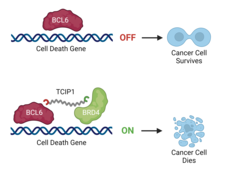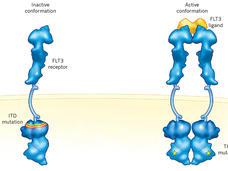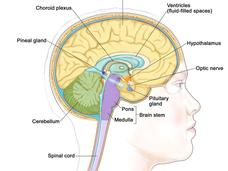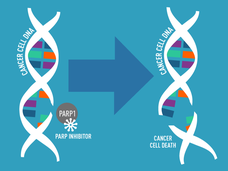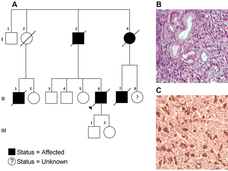August 2023 - Cancer Currents Blog
-
New Class of Compounds Rewires Cancer Cells to Self-Destruct
Researchers have created a molecule that, in cancer cells, hooks onto the protein BCL6 at one end and another protein that turns genes on at the other end. The result: self-destruct genes are turned up, causing the cancer cells to die.
-
Engaging People with Low-Grade Glioma in Cancer Research
An NCI-supported study called OPTIMUM, part of the Cancer Moonshot, was launched to improve the care of people with brain tumors called low-grade glioma in part by bringing them into glioma-related research.
-
Quizartinib Approval Adds New Treatment Option for AML, Including in Older Patients
Treatment options for people with acute myeloid leukemia (AML) have expanded yet again. On July 20, FDA approved quizartinib (Vanflyta) combined with chemotherapy as a first-line treatment for AML with a specific change in the FLT3 gene.
-
Targeted Drug Combo May Change Care for Rare Brain Tumor Craniopharyngioma
Treating craniopharyngioma often requires surgery, radiation therapy, or both. But results of a study suggest that, for many, combining the targeted therapies vemurafenib (Zelboraf) and cobimetinib (Cotellic) may substantially delay, or even eliminate, the need for these treatments.
-
FDA Approves New Initial Treatment Option for Some Metastatic Prostate Cancers
FDA approved enzalutamide (Xtandi) combined with talazoparib (Talzenna) for metastatic castration-resistant prostate cancer with alterations in any of 12 DNA repair genes. The drug combination, which blocks both DNA repair activities and hormones that fuel cancer growth, was more effective than the standard treatment in a large clinical trial.
-
Few People with Cancer Undergo Testing for Inherited Gene Mutations
Despite recommendations, a new analysis shows few people with cancer undergo germline testing to learn if their cancer may have been caused by gene changes inherited from a parent. Germline testing can help doctors determine the best treatments for a patient and help identify people whose family members may be at higher risk of cancer.
